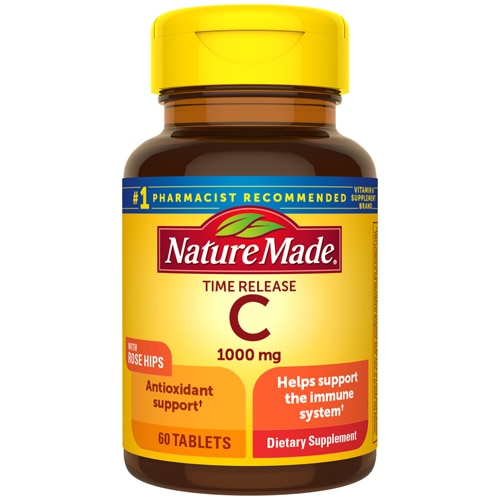A friend of mine recently revealed the contents of her “self-care shelf” to me. In addition to under-eye creams, body scrubs and anti-aging serums, she had bottle after bottle of vitamins and supplements—from silica to vitamin D, St. John’s wort to chastetree berry. When pressed, she admitted to taking 32 supplements per day, on top of the daily “health shot” of turmeric and ginger she gets at her local café.
She isn’t alone in what is, admittedly, a craze. The nutritional supplement market—comprised of vitamins, minerals and herbal dietary supplements—brings in a whopping $36.7 billion annually, meaning that either you or someone you’re close to is taking a supplement as you read this.
From the surface, this appears to be nothing but a positive sign that the average American is taking control of their well-being, and I’ll be the first to say that certain vitamins, minerals and herbs can be a huge boon for your health—with some organically encouraging bone health and others naturally supporting hormone regularity.
But is it possible to get addicted to supplements? And might you be one of them?
Let’s examine.
A culture of instant gratification—and the easiest route possible
It’s impossible to deny that ours is a culture of instant gratification and expedited desires. From fast food to Amazon Prime, we want what we want when we want it—and that extends to wanting to see results immediately, whether it’s zeros in our savings account or perfectly-toned triceps.
It’s only natural that these aspirations have bled into how we approach health. (Just think of crash diets to get the picture.) A supplement that promises (or suggests) relief from PMS or longer, stronger, more beautiful hair seems to many like the fastest route from Point A to Point B. Others, aware that an organic, plant-based diet would benefit them greatly, are less prone to curb processed foods and eat better than they are to grab a multivitamin and figure it’ll make up the difference.
“America is a drug culture,” Organic Authority writes. “We’ve been popping pharmaceutical and over-the-counter pills for decades. And the dietary supplement industry is profiting off this habit by suggesting that we simply swap out our conventional pharmaceutical pill fix for ‘natural’ offerings.”
It goes without saying that ‘natural offerings’ are a far more wholesome alternative to synthetic choices, and, as mentioned, myriad supplements potentially have terrific benefits. But what if you’re taking too many?
Supplement addiction—it’s a real thing
As nurse practitioner John Pamperin writes, “…you can become addicted to vitamins, because you feel without vitamins you are courting death and disease. I only recommend supplements to people who have a clear medical deficiency, such as B12, D or calcium, which are discovered in diagnostic tests.”
Or, as Dr. Steven Charlap, the founder of HealthDrive and MDPrevent says, “My definition (of addiction) is the compulsive use of a substance in the absence of any evidence that the product enhances health or that it is not harmful. Furthermore, my definition includes the use of such a product as a crutch and substitute for otherwise engaging in healthy behaviors such as a health-promoting diet, physical activity, stress management, etc.”
What’s more, we weren’t built to receive the lion’s share of our nutritional needs in a capsule (or, for that matter, in a tablet, gummy, chewable or extract)—meaning, we were meant to eat an orange and not just toss back a vitamin C tablet.
Additionally, some individuals pop supplements without bothering to do much research, including whether or not the supplement contains ingredients such as corn syrup, GMO additives and chemical fillers—to say nothing of whether or not the supplement comes from a reputable manufacturer. As Organic Authority phrases it, “A big part of the problem is that supplement companies don’t need to have any medical credentials, doctors or herbalists on staff in order to create or sell a dietary supplement in the U.S. ‘There are some rules, but you can still bring it to market and create a story around it and convince people they need it,’ says herbalist Trinity Ava. ‘We don’t have a regulatory framework that relies on credentials.’”
Further, taking supplements for the short or long term tends to make some people feel excused from addressing larger health concerns. What’s the point in eating kale, the logic goes, if I can just have this croissant and take a multi?
And if you are taking too many supplements…
Taking ‘too’ many constitutes consuming supplements simply for their alleged benefits/to relieve symptoms or as insurance against potential health worries—without truly knowing if you actually need them.
As Ava says, ““We are still pretending that all dietary supplements are good for us.” That belief—that anything natural is, well, naturally good for us, results in over-consumption and possibly hazardous behaviors and side effects. As Organic Authority goes on to write, “ironically, in the natural food industry, people are treating themselves as guinea pigs, mixing pills, extracts, teas and more in excessive self-diagnoses and treatment combinations that can be truly unhealthy.”
To determine whether or not you need a supplement in the first place, schedule a visit with your licensed naturopathic physician, who will order appropriate testing and is trained to determine what you’re lacking in.
All of this is not to say that supplements, as mentioned, can have advantages—and may be necessary. (As Organic Authority points out, “The processed foods dominant in the Standard American Diet, and issues like depleted soil quality, can decrease the vitamins once abundant in our food.”)
More importantly, though, it’s essential to make necessary changes to your lifestyle to achieve genuine well-being. Eating well, exercising regularly, staving off stress, getting adequate sleep, abstaining from smoking and limiting alcohol may not have that “get healthy quick” appeal promoted by gimmicky advertisers, but all of these habits will contribute to a healthier, happier you. And isn’t that what we’re really looking for, anyway?




